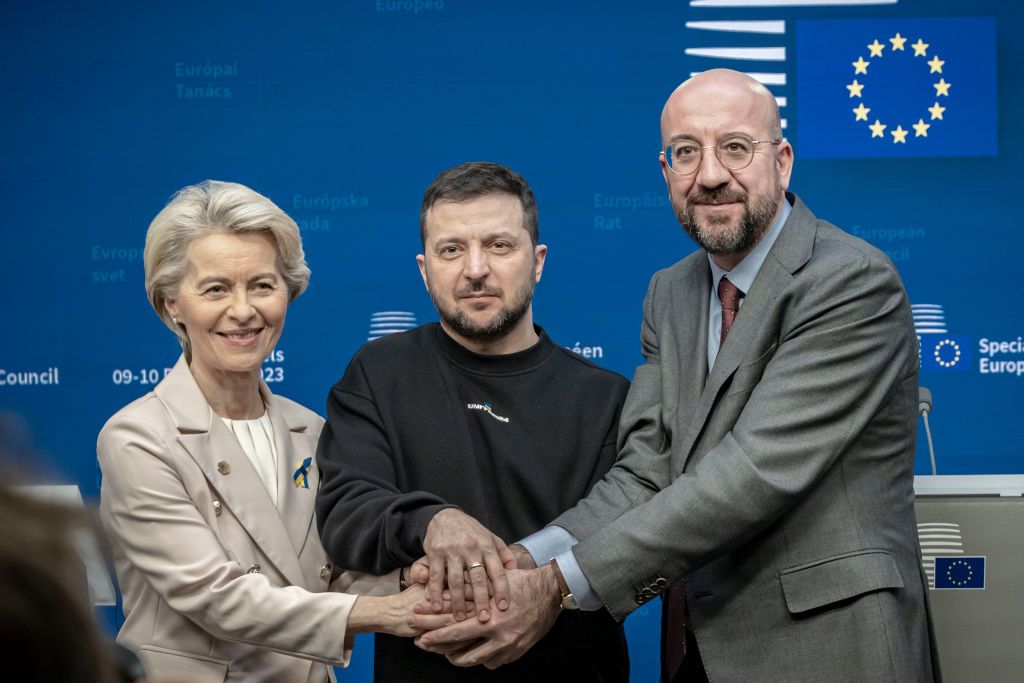Opinion: What's next for Poland?

WARSAW – This wasn’t supposed to happen. With sweeping control over state financial resources and public and local media, Poland’s populist ruling party, Law and Justice (PiS), had a massive structural advantage in this month’s parliamentary election. It should have won handily and continued consolidating its illiberal, anti-democratic rule.
Instead, PiS confronted a national uprising, winning just over 35% of the vote, while opposition parties won more than 54%. Poland’s democratic institutions may have been weakened during the years of PiS misrule, but its people have proven more than capable of mobilizing against the threat of an entrenched authoritarianism.
Reaching almost 75%, voter turnout was the highest it has been in Poland since communism’s fall. As in 1989, there was a widespread sentiment that this election would be historic. Still, the opposition’s sweeping victory seems to have surprised its own leaders as much as PiS, whose leader, Jarosław Kaczyński, should now be considered politically armed and dangerous. PiS retains control of the instruments of power, including the body that certifies election results.
This, too, is reminiscent of 1989. The authorities have the state apparatus at their disposal, but no democratic mandate, whereas the opposition has a mandate, but no real power. Given PiS’s past behavior, it remains to be seen if Poland will need its own Ukrainian-style mass protests to bring down the government – its own Maidan. After all, many PiS elites are credibly suspected of corruption and other crimes, and opposition leaders are under immense public pressure to ensure that they are held accountable.
That said, other scenarios are also possible. Kaczyński has reportedly taken the blame for PiS’s loss and is now busy trying to convince smaller parties to join PiS in forming a government. All of them immediately refused. Polish President Andrzej Duda, a PiS member, has 30 days from election day before he must convene the Sejm (the parliament’s lower house), and he is likely to use them all. He will then give PiS 14 days to try to form a government.
Only if it fails to do so will the opposition have the chance to take power. Meanwhile, files in PiS-staffed offices will be burned, hard drives will be wiped cleaned, and any other evidence will be destroyed.
Knowing that Duda is loyal to him, and that the country could be heading for an economic crisis, Kaczyński may be hoping that opposition parties will succumb to internal disputes. PiS remains Poland’s strongest party, and Duda will wield a veto that requires a three-fifths parliamentary majority to overrule. Moreover, Poland will have local elections in seven months, followed by the European Parliament election next June, and then a presidential election in 2025. That gives a new coalition government plenty of opportunities to flounder, fracture, or fail.
Moreover, Kaczyński’s takeover of Poland’s judicial machinery during PiS’s eight years in power has left the country with two legal orders: one that is still committed to upholding the Constitution, treaties, and international court rulings, and another that is committed only to Kaczyński. For example, around 2,000 “defectively appointed” judges loyal to PiS have been issuing rulings for years. What can be done about them and their several million judgments?

Similar questions apply to the Constitutional Court, which is currently packed with PiS cronies who were installed in an unconstitutional manner. Even if a new government finds a way to remove all these judges, new ones will have to be appointed by the president.
While this presidential duty is supposed to be merely ceremonial, Duda has abused it in the past and will surely do so again. In fact, on the day after the election results were announced, he hastily appointed 72 more judges in a show of loyalty to Kaczyński
For now, the opposition parties are committed to addressing these thorny issues together, and some have already called for an independent “Commission of Law and Justice” to oversee investigations into wrongdoing. Unlike in 1989, Polish civil society today is strong. Organizations that have been defending ousted judges and promoting the rule of law for the past eight years are ready to spearhead the process.
Restoration of the rule of law is eagerly awaited not just by the Polish public, but also by the European Union, which has yet to decide whether to release the EU recovery funds that were allocated to Poland during the pandemic. If a new government can introduce credible reforms and restore purged judges to the bench, that may be enough to satisfy the European Commission for now. But enacting these reforms requires overcoming a presidential veto, and it remains to be seen how the new government will manage that, not to mention the challenge of fulfilling the rest of its campaign promises.
Since PiS has locked in large mandatory spending increases, future governments will have only a limited fiscal scope. Poland’s budget deficit already may be subject to enforcement of EU fiscal rules in 2024. If that happens, it will be virtually impossible to increase spending or pursue any measure that may reduce revenue.
Foreign policy should be more straightforward. Former European Council President Donald Tusk, the obvious choice to serve as prime minister, should travel first to Kyiv and Brussels, since the immediate task is to strengthen and rebuild relations with Ukraine and the EU, respectively. Poland’s strategic location, economic potential, and demographic heft suggest that it is well equipped to help lead Europe, and with Italy under populist control and Spain preoccupied with itself, Poland can complete a power triangle with Germany and France. This arrangement could also come in handy when the French and the Germans are at odds.
First, though, the opposition must defend its election victory. That means efficiently appointing a new government, defending against foul play from PiS, and offering a plan to address the immediate legal and economic issues. All Europeans have an interest in the new government’s success.
Editor’s Note: Copyright, Project Syndicate. The following article was published by Project Syndicate on Oct. 24, 2023, and has been republished by the Kyiv Independent with permission. The opinions expressed in the op-ed section are those of the authors and do not purport to reflect the views of the Kyiv Independent.












